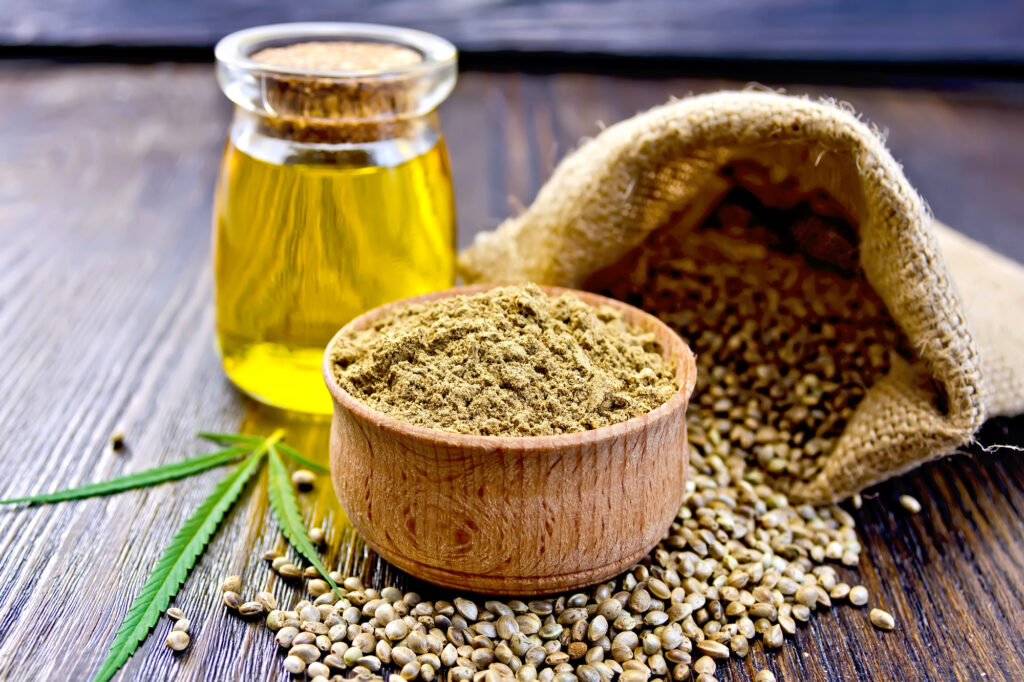Introduction
Hemp seeds, often referred to as hemp hearts, are a nutritional powerhouse that has garnered increased attention in recent years due to their many health benefits. These small, nutty-tasting seeds are derived from the hemp plant, Cannabis sativa, but they don’t contain the psychoactive compound THC that’s found in marijuana. Instead, they offer a host of essential nutrients and are considered a superfood. In this comprehensive guide, we will explore five key health benefits of hemp seeds that you need to know.
Understanding Hemp Seeds
Hemp seeds are the seeds of the hemp plant, and they have been cultivated and used for thousands of years in various cultures for their nutritional and therapeutic properties. These small seeds have a unique nutritional profile that includes healthy fats, protein, fiber, vitamins, and minerals. They are often consumed raw, but can also be roasted, cooked, or turned into oil or milk.
Here are five remarkable health benefits of incorporating hemp seeds into your diet
Rich in Nutrient-Dense Protein
Protein is an essential macronutrient that plays a crucial role in various bodily functions, including muscle development, immune system support, and enzyme production. Hemp seeds are an excellent source of plant-based protein, making them a valuable addition to vegetarian and vegan diets.
Just three tablespoons of hemp seeds contain approximately 10 grams of protein, which is more protein than you’d find in an equivalent serving of chia seeds or flaxseeds. The protein in hemp seeds is highly digestible, and it provides all nine essential amino acids, making it a complete protein source.
Abundant in Healthy Fats
Hemp seeds are a rich source of healthy fats, particularly omega-3 and omega-6 fatty acids. These essential fatty acids play a vital role in supporting heart health, brain function, and reducing inflammation in the body.
The balance of omega-3 and omega-6 fats in hemp seeds is ideal for human health, as it closely resembles the ratio recommended by health experts. Consuming these fats in the right balance can help reduce the risk of chronic diseases like heart disease and diabetes.
Exceptional Source of Dietary Fiber
Fiber is an important component of a healthy diet, as it aids in digestion, regulates blood sugar levels, and helps maintain a healthy weight. Hemp seeds are an excellent source of dietary fiber, with three tablespoons containing around 1.2 grams of fiber.
The fiber in hemp seeds is primarily soluble fiber, which can help lower cholesterol levels and reduce the risk of heart disease. Additionally, hemp seeds’ insoluble fiber content supports digestion by preventing constipation and promoting regular bowel movements.
Promotes Heart Health
The nutrient composition of hemp seeds, including their healthy fats and fiber, makes them an ideal addition to a heart-healthy diet. Regular consumption of hemp seeds has been associated with several heart-protective benefits.
The omega-3 fatty acids in hemp seeds can help lower blood pressure and reduce the risk of heart disease. Additionally, hemp seeds are a good source of arginine, an amino acid that can enhance blood flow and promote overall heart health.
Supports Skin and Hair Health
The nutritional components of hemp seeds can also have a positive impact on the health and appearance of your skin and hair. The combination of healthy fats, vitamins, and antioxidants in hemp seeds makes them an excellent choice for promoting skin and hair health.
Omega-3 and omega-6 fatty acids in hemp seeds can help reduce inflammation, which may alleviate skin conditions like eczema and psoriasis. Furthermore, these essential fats promote overall skin hydration and health.
Hemp seeds are also a good source of vitamin E, an antioxidant that protects the skin from damage caused by free radicals. This can help reduce signs of premature aging and maintain a youthful complexion.
How to Incorporate Hemp Seeds into Your Diet
Hemp seeds are incredibly versatile and can be easily integrated into various dishes to enhance their nutritional value. Here are some simple ways to incorporate hemp seeds into your diet:
- Sprinkle on Salads: Add a tablespoon or two of hemp seeds to your salads for an extra crunch and a nutritional boost.
- Blend in Smoothies: Toss a handful of hemp seeds into your morning smoothie for an extra dose of protein and healthy fats.
- Stir into Yogurt: Mix hemp seeds into your yogurt or overnight oats for a nutty flavor and added nutrition.
- Bake with Them: Include hemp seeds in your baking recipes, such as muffins, cookies, or granola bars.
- Make Hemp Milk: You can make your own hemp milk by blending hemp seeds with water and sweetening to taste.
- Top Cereals: Sprinkle hemp seeds on your breakfast cereals to increase their protein and fiber content.
- Boost Soups and Stews: Add hemp seeds to soups, stews, and even pasta dishes to enhance their nutritional value.
- Use as a Salad Dressing: Grind hemp seeds and combine them with olive oil, lemon juice, and your favorite herbs to create a nutritious salad dressing.
It’s essential to store hemp seeds in an airtight container in the refrigerator to prevent them from going rancid. Their natural oils can become unstable when exposed to heat and light, so refrigeration is the best way to preserve their freshness.
Potential Allergies and Precautions
While hemp seeds offer numerous health benefits, it’s crucial to be aware of potential allergies. Although hemp seeds are considered generally safe and rarely trigger allergic reactions, some individuals may be sensitive to them. If you have a known allergy to cannabis or marijuana, it’s advisable to exercise caution when introducing hemp seeds into your diet.
Additionally, if you are currently taking medications or have a medical condition, consult with a healthcare professional before significantly increasing your hemp seed intake. The high fiber content of hemp seeds may interact with certain medications or digestive conditions.
Final Thoughts
Hemp seeds are a nutrient-rich superfood with a host of health benefits that can complement a well-balanced diet. Their exceptional protein content, healthy fats, dietary fiber, and a range of vitamins and minerals make them a valuable addition to various dishes, from salads to smoothies and baked goods. By incorporating hemp seeds into your diet, you can harness their nutritional power and support your overall health and well-being. However, as with any dietary change, it’s wise to consult with a healthcare provider if you have specific dietary restrictions or medical concerns.

